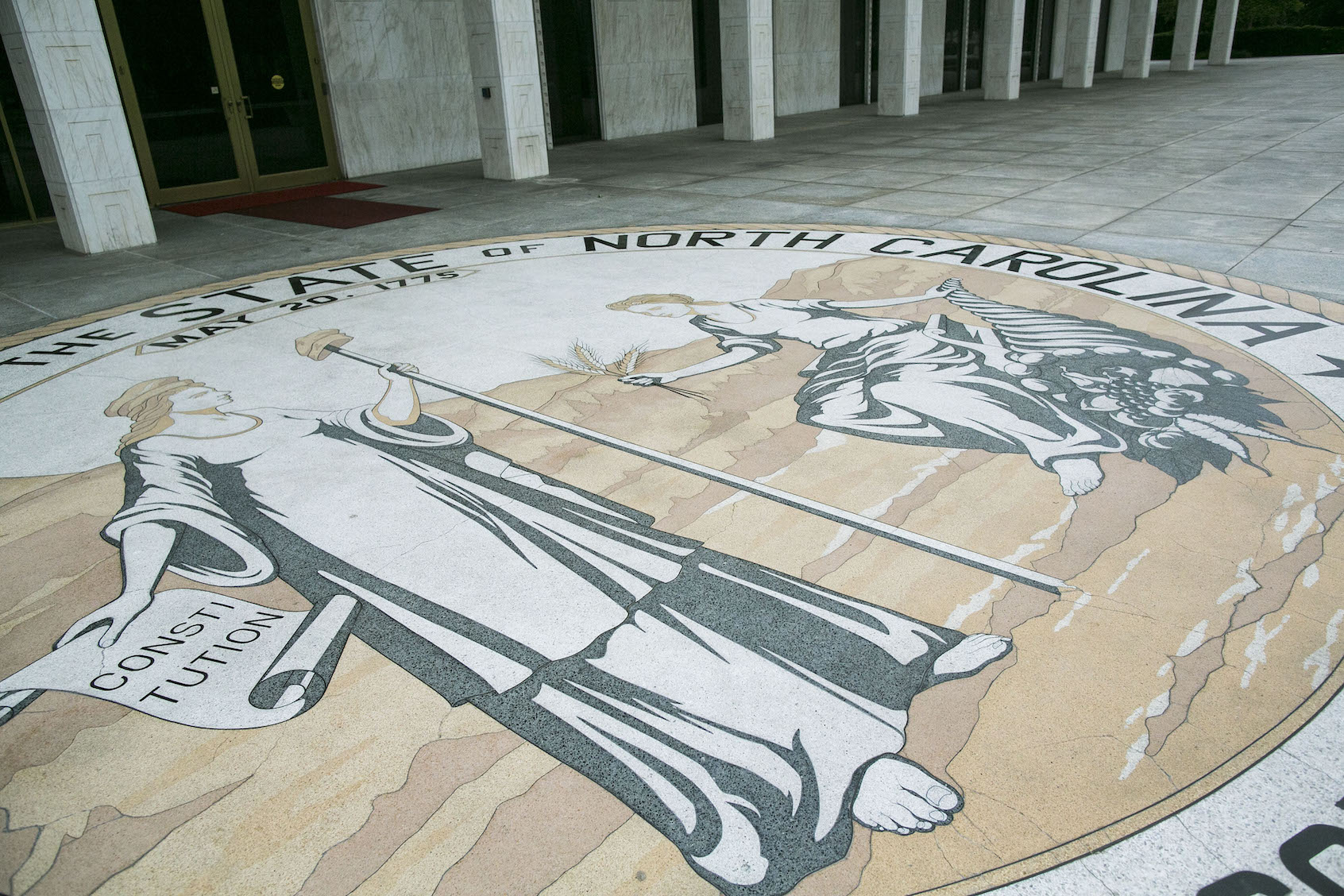World
North Carolina’s Chief Justice Paul Newby Reshapes State Judiciary

In early 2023, Paul Newby, the Republican chief justice of North Carolina’s Supreme Court, showcased the considerable influence of his office by initiating a significant shift in the state’s judicial landscape. This transformation follows a controversial ruling from the previous year when a Democrat-majority court deemed partisan gerrymandering unconstitutional. In a move that critics have labeled politically motivated, Newby led the court to revisit the case and ultimately legalize gerrymandering, paving the way for the Republican-controlled legislature to redraw electoral maps ahead of the crucial 2024 election.
The initial ruling against gerrymandering had ordered independent entities to create fair electoral maps, but Newby’s leadership allowed for a swift reversal. After two newly elected Republican justices joined the court, GOP lawmakers filed a petition to rehear the case. Historically, such requests have been rare; since 1993, the court had granted only two out of 214 petitions for rehearings. Yet, under Newby’s direction, the court’s conservative majority voted to reconsider its previous decision without the customary in-person debate, a departure from decades of judicial practice.
In a notable session in early February, Justice Phil Berger Jr., a key ally of Newby, circulated a draft order to approve the rehearing, which was rapidly approved by the court’s conservative justices. Meanwhile, the two liberal justices, left with limited influence, worked overnight on a dissenting opinion. The court’s ultimate decision allowed the GOP lawmakers to discard electoral maps that previously reflected a balanced congressional delegation in North Carolina. This redistricting effort contributed to a significant shift in the state’s political landscape, resulting in North Carolina sending 10 Republicans and 4 Democrats to Congress in 2024, a six-seat swing that helped the GOP regain control of the U.S. House of Representatives.
Newby’s Influence on North Carolina’s Judiciary
Beyond the immediate impacts of the gerrymandering case, Newby, aged 70, has been pivotal in transforming North Carolina’s judiciary since his election to the Supreme Court in 2004. Critics argue that he has systematically eroded the independence of the courts, steering them towards a more partisan direction. He has advocated for explicitly partisan judicial elections and supported the elimination of public financing for judicial campaigns, leading to an increase in high-stakes, costly races dominated by conservative interests.
Newby’s tenure has been marked by efforts to diminish the power of the state’s Democratic governor, undermining voter choices made in recent elections. His administration has also seen the removal of diversity initiatives within the court system, with reports of liberal and LGBTQ+ employees being replaced by conservatives. Newby openly discusses how his Christian faith informs his judicial philosophy, suggesting that his interpretation of justice is guided by religious principles.
Former justices and legal professionals describe Newby as more of a political operator than an impartial jurist. He has filled the courts with former clerks and associates cultivated through faith-based events. His family connections further bolster his political influence; his wife is a prominent Republican donor, and one of his daughters plays a significant role in the state Republican Party.
The changes initiated by Newby have prompted concerns about the integrity of North Carolina’s judiciary. Critics assert that he has shaped the court into a vehicle for advancing a conservative agenda, with accusations of undermining judicial accountability. Bob Orr, a former justice, emphasized Newby’s unprecedented influence, stating, “Without question, Chief Justice Newby has emerged over the past 20 years as one of the most influential judicial officials in modern North Carolina history.”
The Broader Implications for Judicial Independence
Newby’s approach to judicial governance has broader implications, as North Carolina serves as a case study for similar conservative movements across the United States. The conservative legal movement has invested heavily in shifting state supreme courts towards Republican control, with North Carolina being at the forefront of these efforts. Douglas Keith, deputy director of the judicial program at the Brennan Center for Justice, identified North Carolina as “the epicenter of the multifront effort to shape state supreme courts by conservatives.”
As Newby continues to influence court rulings and judicial appointments, his actions have raised alarms about the erosion of public trust in the judiciary. A December 2022 Gallup poll revealed that only 35% of respondents expressed confidence in the courts, a record low compared to nearly 60% in 2006. This decline in trust coincides with a national trend of increasing partisanship in judicial elections, exemplified by North Carolina’s evolving political landscape.
As Newby completes his term, his legacy will likely be characterized by the intensification of partisan divisions within the judiciary. The ongoing struggles between the state’s Democratic governor and the Republican-controlled legislature are anticipated to shape North Carolina’s political future, with Newby’s decisions playing a central role in this dynamic.
In summary, Chief Justice Paul Newby’s tenure marks a significant turning point for North Carolina’s judicial system, reflecting broader trends in American politics where the lines between law and partisanship continue to blur. As the state navigates these changes, the implications for democracy and the rule of law remain to be seen.
-

 Science2 weeks ago
Science2 weeks agoResearchers Challenge 200-Year-Old Physics Principle with Atomic Engines
-

 Politics2 weeks ago
Politics2 weeks agoNHP Foundation Secures Land for 158 Affordable Apartments in Denver
-

 World7 days ago
World7 days agoBoeing’s Aircraft Production: Assessing Numbers and Challenges
-

 Lifestyle5 days ago
Lifestyle5 days agoTrump’s Push to Censor National Parks Faces Growing Backlash
-

 Lifestyle6 days ago
Lifestyle6 days agoRed Bluff High School’s Elli Nolan Named Rotary Student of the Month
-

 Entertainment6 days ago
Entertainment6 days agoSyracuse Stage Delivers Lively Adaptation of ‘The 39 Steps’
-

 Health2 weeks ago
Health2 weeks agoNeuroscientist Advocates for Flag Football Until Age 14
-

 Lifestyle2 weeks ago
Lifestyle2 weeks agoLongtime Friends Face Heartbreak After Loss and Isolation
-

 Science6 days ago
Science6 days agoAI Misidentifies Doritos Bag as Gun, Triggers Police Response
-

 Politics5 days ago
Politics5 days agoNFL Confirms Star-Studded Halftime Show for Super Bowl LVIII
-

 World2 weeks ago
World2 weeks agoGlobal Military Spending: Air Forces Ranked by Budget and Capability
-

 Health2 weeks ago
Health2 weeks agoFDA Launches Fast-Track Review for Nine Innovative Therapies









